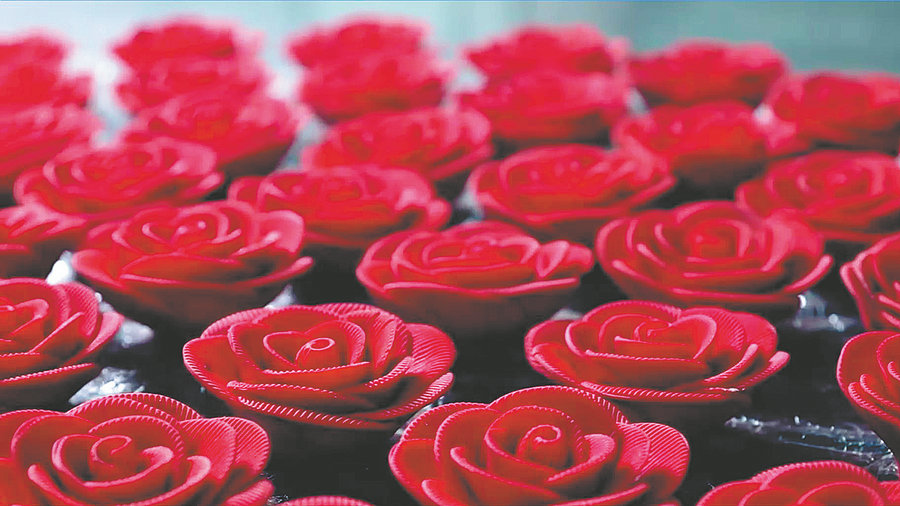

Unlike the traditional family-based huamo production, Zhang's huamo products have been injected with fresh elements.
In Zhang's store, a bunch of colorful and lifelike bright and golden "roses" are particularly eye-catching.
"This is our new design, very popular with young people, and the sales have been especially brisk," Zhang says.
Her business now not only undertakes traditional huamo production, but also caters to modern consumer demand for a variety of novel patterns, such as hand-held flowers, potted plants, calligraphy and paintings.
"Huamo has to go through innovations to keep up with the beat of modern life," Zhang explains.
After the company was established, Zhang and her team produced a bun featuring the Chinese character shou, meaning longevity.
"We saw a picture of the word in a painting from the Qing Dynasty, and thought the symbolism was particularly good, so we used huamo to present it."
The product is one meter wide and 1.5 meters tall and has been popular with customers who want to celebrate birthdays of the elderly.
Zhang has found that huamo has also made its way to the high-end market as a business gift, since it can be made into pure artwork that can last for seven or eight years.
At present, her company has employed more than 20 locals who engage in marketing, product development and processing.
"The youngest are in their 20s and the oldest is 70, and the inheritance of skills is completed in the workshop," Zhang says.
At present, there are two large huamo enterprises and 12 cooperatives in Wenxi, with more than 1,000 locals involved.
The annual output value has reached 10 million yuan ($1.38 million), according to local authorities.
This year, Zhang has put together a livestream team, with an eye to promoting the "mother's art" across the country.
"It's my wish that huamo could claim just as much place as cake does during our traditional festivals," Zhang says.
Peng Ke'er contributed to this story.